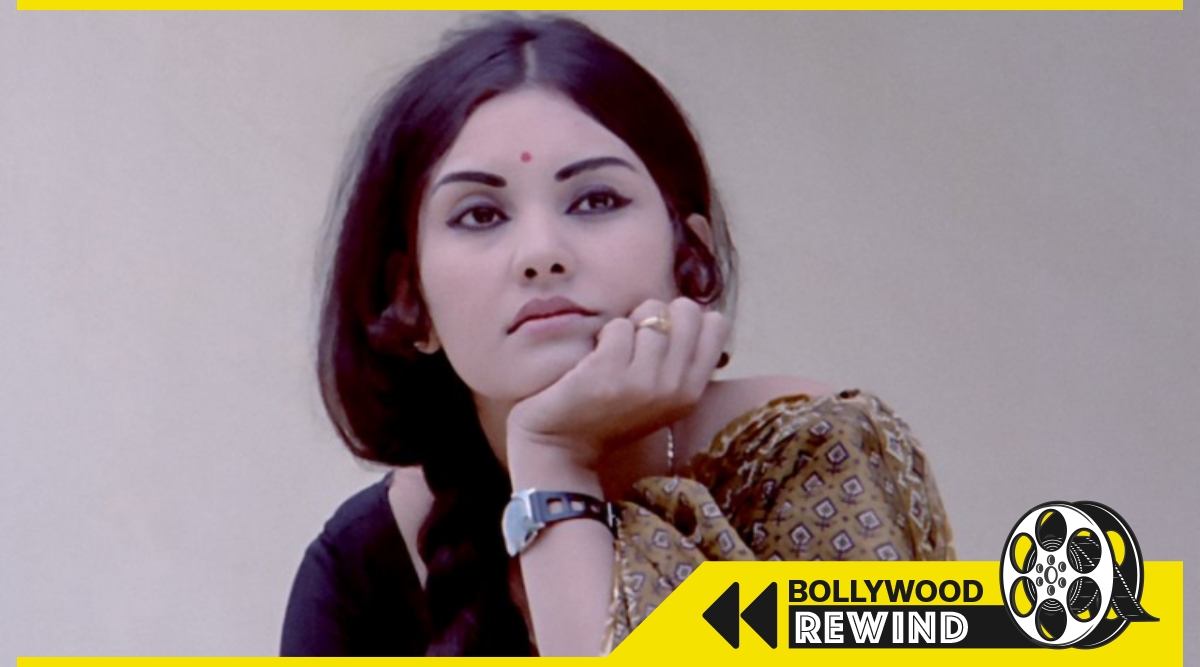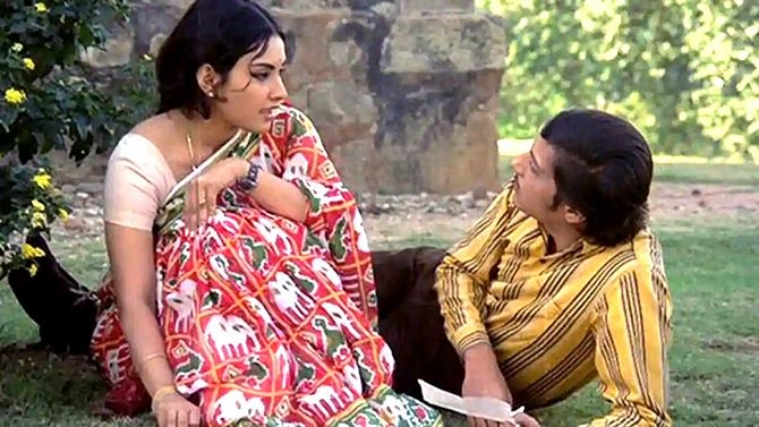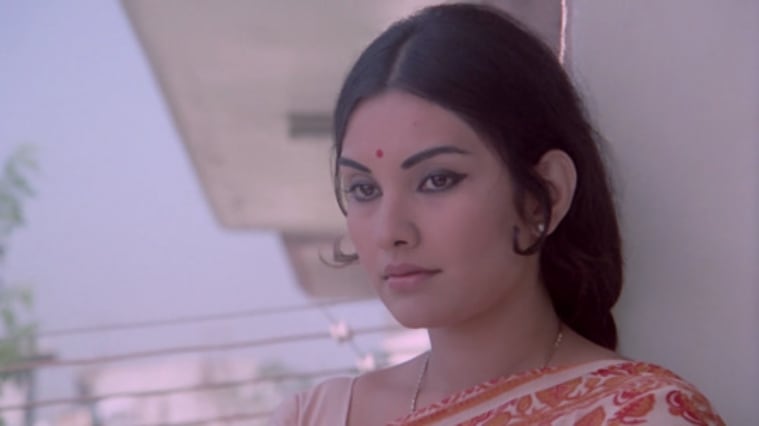 Vidya Sinha plays the lead role in Rajnigandha.
Vidya Sinha plays the lead role in Rajnigandha.The 1970s was a dynamic decade for Hindi cinema. While on one end of the spectrum Salim-Javed were writing about the angst of the common man, there were also filmmakers like Basu Chatterjee who delved into simpler problems that the same common man was facing on an emotional level. The ‘middle-of-the-road’ cinema established by Basu and a few of his contemporaries saw people living in regular, middle-class houses, wearing clothes that weren’t fashionable as such, and even the emotional scale of these characters was pretty much on the same wavelength as the audience. It was in this phase that the audience was introduced to actors like Vidya Sinha and Amol Palekar, and a film like Rajnigandha, that was quite an anomaly in those days.
In the opening minutes of Rajnigandha, we see Vidya Sinha’s Deepa and her nightmares that explain her biggest fear – that of being left alone. While she is not consciously aware of this, Basu instils it in the audience that the decisions she takes from hereon are in response to that fear. The fear of being lonely has always been a relatable concept, and this core thought of the film gets your attention from the start. In Deepa, we meet an educated woman who is completing her Ph.D. but is stuck in a relationship where her boyfriend takes her for granted. Sanjay, played by Amol Palekar, is annoying yet charming (that somehow only Deepa can see), and she spends most of her time waiting for him, literally. He is one of those men who are only pretending to listen to you just so they can get a chance to talk. In Sanjay’s case, he doesn’t even let her finish her sentences. His conversation is always all about himself and you wonder, ‘Why is Deepa even with this guy? She can do better.’ As soon as you ask this question, you know that Deepa would rather be with him than be all alone.
During one of their conversations, Sanjay mentions that if Deepa finishes her Ph.D., his father might have an objection to their relationship as he is only a graduate. Even though he says it with a laugh, you know that this thought is in his heart. He relishes in those sexist WhatsApp jokes, or whatever they were called in the 1970s, and feels that marriage would tie him down, as if he’s soaring right now.
 Vidya Sinha and Amol Palekar in Rajnigandha.
Vidya Sinha and Amol Palekar in Rajnigandha. When Deepa chances upon an opportunity to work as a lecturer, he dismisses it by saying ‘khoda pahad nikla chuha’. At this point, Sanjay feels like an irredeemable character who hasn’t done anything exceptionally evil, but he is just not the right guy and Deepa picks up on the same. An accidental meeting with her ex-boyfriend Navin, played by Dinesh Thakur, reminds Deepa of what she could have. He is the antithesis of Sanjay in every way – he is always on time and pays attention to what she has to say. His general demeanour of being a nice person, has Deepa believing he is still in love with her. In this moment, Deepa’s dilemma starts: Does she love Sanjay enough to be with him, or would she rather get back with Navin?
Subscriber Only Stories
Unlike how women are often portrayed in Hindi films, Basu does not judge Deepa for being confused about who she loves. She is committed to Sanjay, but the idea of exploring a relationship with Navin, just in her thoughts, isn’t seen as immoral. And while that should be the ideal scenario, we all know that’s not the case when it comes to women in films. It is here that the lyrics of the background song “Kayi Baar Yun Bhi Dekha Hai” seem befitting as they talk about “mann ki seema rekha“, the rekha that Deepa is toying with very closely.
 Vidya Sinha plays Deepa in Rajnigandha.
Vidya Sinha plays Deepa in Rajnigandha. It is interesting to note that while Deepa is shown as a modern woman, her social conditioning isn’t very much different from other female protagonists of the era. She doesn’t equate love with marriage, but she would rather marry than take up an opportunity to work in a different city. Basu, who was very careful with how his female characters came across in his movies, justifies Deepa’s actions in that all-important opening scene. So while as a viewer in 2022, you would want Deepa to take that leap and take up a job that would ultimately get her to break up with Sanjay, you sort of also empathise with her. She chooses to let go of a job in an alien city because she could be lonely there, she chooses to let go of the thought of Navin because Sanjay is a safe bet. Her choices aren’t the wisest but in their own individualistic way, they make sense for her.
Basu, in many films of his films in this era, discussed these emotional issues that were not addressed in the larger-than-life movies, which got the audience to appreciate and accept his work. Rajnigandha was made 48 years ago but it is truly surprising to see that Basu’s understanding of human psyche, which essentially stays the same across generations, has been communicated in a way that makes you feel like you know a Deepa, and are hoping that she makes better choices.
- The Indian Express website has been rated GREEN for its credibility and trustworthiness by Newsguard, a global service that rates news sources for their journalistic standards.

